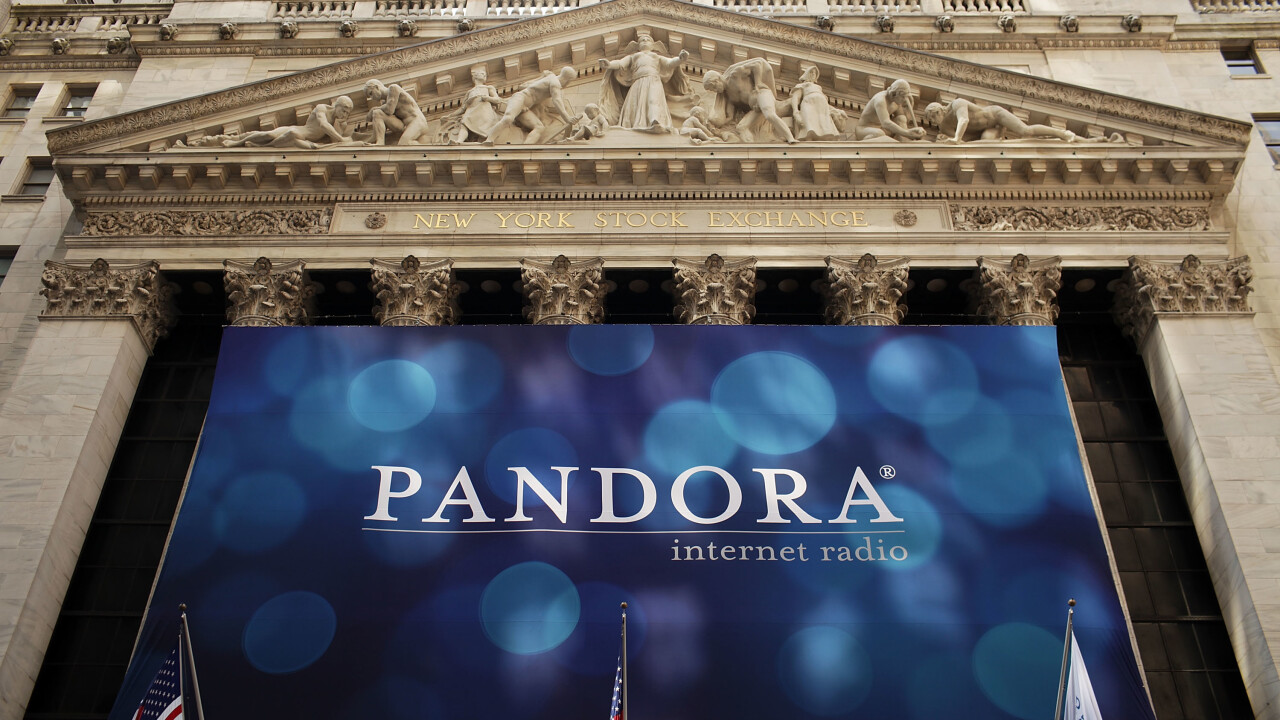
Pandora’s co-founder Tim Westergren is seeking to clear the air about some misconceptions being hurled at his company’s direction. In a blog post today, he struck back at opponents who claim that the service’s royalties are not what they should be.
The main target of this rebuttal post: the Recording Industry Association of America (RIAA). This is the organization representing musicians and bands and has been at the forefront of the battle against illegal music downloading and now apparently streaming radio services. At issue is the RIAA’s belief that Pandora should pay more royalties and that it was claiming the service was deliberately not serving ads in order to not be profitable.
Westergren refutes the RIAA’s claims that Pandora is seeking to reduce artist royalties by 85 percent. He states that the main principals including RIAA head Cary Sherman and SoundExchange’s Mike Huppe, are aware of a plan to advocate for solutions to grow total payments to the artists. Westergren says that his company has always supported fair compensation to artists.
That is a lie manufactured by the RIAA and promoted by their hired guns to mislead and agitate the artist community. We have never, nor would we ever advocate such a thing. I challenge the RIAA to identify a statement from Pandora that says we seek to reduce royalties by 85%.
Another point Westergren makes in his post concerns the amount Pandora pays per “spin”. Over some confusion of the definition, he explains that a million “spins” on Pandora is the equivalent to a single play on a large FM station:
How much would we pay in royalties for a million spins? About $1,370.
If major market FM stations paid the same rates as Pandora, based on audience, some would be paying thousands of dollars for every song they played. How much do they pay performers right now? Zero. As Richard Conlon, SVP at BMI recently said: “One play on commercial radio is not the same thing as one play on Pandora.” He is right.
Westergren cites a calculation done by an independent blogger that he says is accurate. If believed, it would disprove the RIAA’s position on the issue and also contradict another story recently this week that said an artist received $16 for a song that spun a million times.
Pandora says that in 2012, it paid out over $250 million in performance fees. But even with this, Westergren says that the value of a spin is much more than just royalties. It’s also about the audience and the fact that artists, bands, and musicians can grow their fan base through the service.
So what’s next for the music streaming service? Pandora says that:
We are committed to the challenge of building an ad-supported business for consumers, and to do it bearing a substantial royalty cost, but just as we must honor and value the role artists play in providing the music for the service, so the artist community must also value the years of effort, investment, and expertise that has made Pandora such a massive driver of artist exposure in the music ecosystem. Such an outcome will only be reached if the debate is based on real evidence and real impact instead of emotionally satisfying but hollow talking points that do nothing but mislead, and worse, misguide the policy prescriptions for artists.
In the company’s Q1 2014 earnings that were released in May, Pandora saw growing total GAAP revenue of $125.5 million. Its mobile revenue also increased 97 percent year-over-year to $83.9 million. The service added 700,000 new Pandora One subscribers, bringing the total number to more than 2.5 million.
Pandora has also seen its market share of total US listening grow to 7.33 percent, an increase from 5.86 percent in 2012.
Photo credit: Spencer Platt/Getty Images
Get the TNW newsletter
Get the most important tech news in your inbox each week.




